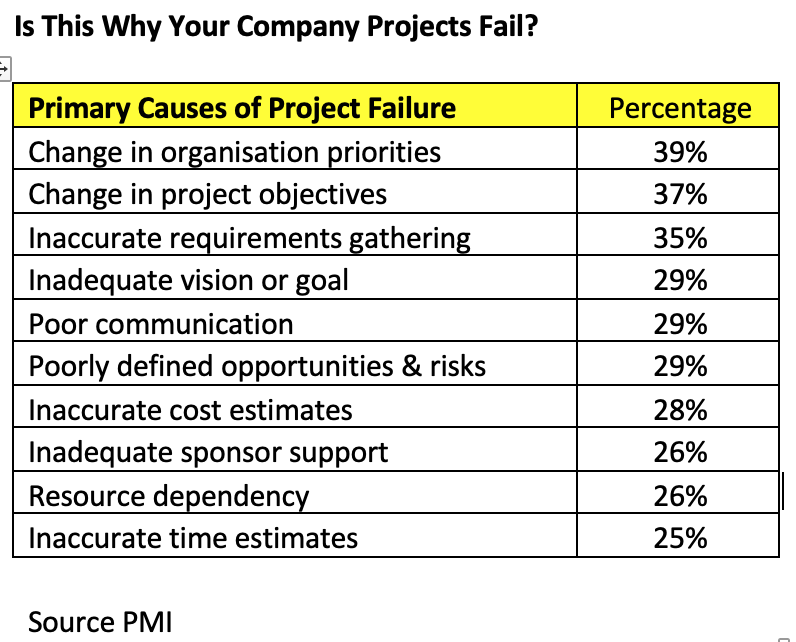
by Anthony Francis | Feb 20, 2023 | Uncategorized
It doesn’t matter if it’s your business or personal life we all make mistakes.
The question is what will we do about it?
A lot of the time it’s about our mindset, yes the area that is always mentioned but the one that many of us don’t learn that much about due to misinformation.
A simple example of mindset is whether you see a glass as half empty or half full?
With personal improvement this can also be a challenge to our mindset. For example how do you respond if you fail at an interview, or if your performance review at work isn’t as good as you expected?
How do you react if given negative feedback, or if the project you’re managing fails? what personal actions will you take?
A lot of the time the answers to the above can be found in what actions we do or don’t do to improve.
The simple answer is if you do nothing, then you’re more likely to make the same mistakes again.
It’s why professional sports individuals and teams have coaches, not only to work on their game but also on their mindset, to help them improve and minimise future mistakes were possible.
When I working in project management, you were encouraged to review the lessons learnt report before starting a new project.
The fact is we are not perfect so we all need help with improving in different areas. In business the framework for business excellence is listed below, have a look at it and ask yourself where do I need improvement?
If you or your organisation would like to more about how my business excellence framework, coaching and mentoring can contribute to improvements in your business success, then click on the link in my bio, or send me a DM to arrange a call to find out more.
1. Leadership
2. Customers
3. Knowledge
4. Processes
5. Strategy
6. People
7. Results
Business Excellence Framework.
#team #process #performance #strategy #business #career
#leadership #success #coaching #productivity #mentoring #teamengagement #projectmanagement #communication #collaboration #projectmanagers #job #accountability

by Anthony Francis | Feb 17, 2023 | Uncategorized
In my time as a project management professional, it made me realise that the skills and knowledge I’ve learnt from the process of leading different teams to achieve project goals within given time and financial constraints, not only had a significant impact on developing business excellence within the project, but also for the individuals in the team themselves.
This is because project management involves five core activities, that of Initiation, Planning, Execution, Control, and Close.
In contrast business excellence is a term used to describe a set of practices and principles that organisations use to achieve outstanding performance and sustained success. It involves a systematic approach to managing an organisation, focused on optimising processes, improving efficiency, and enhancing customer satisfaction.
However, as I’ve already mentioned business excellence also applies to individuals as well. Why? Because individuals who develop business excellence it can provide the stepping stone to promotions and career advancement as they become more valuable to their organisations.
How is this possible?
Business excellence and its framework involve 7 core principles:
- Leadership
- Customers
- Knowledge
- Processes
- Strategy
- People
- Results
The 7 core principles above are not only for business excellence, but are foundation and knowledge framework of any business manager looking to excel and develop their own business career.
For me processes don’t execute projects, people do, and if you or your organisation would like to more about how my business excellence framework, coaching and mentoring can contribute to your business success, then click on the link in my bio, or send me a DM to arrange a call to find out more.
#team #process #performance
#leadership #success #coaching #productivity #teamengagement #projectmanagement #communication #collaboration #projectmanagers #job #accountability

by Anthony Francis | Feb 13, 2023 | Uncategorized
The Project Management Institute (PMI) have identified in the attached image the following primary reasons for project failures. It clear a Project Manager has a lot to think about on a project. It’s not simply just having a process or methodology in place and thinking all will be fine. In fact, processes don’t execute projects, people do.
So as can be seen from the above there is no single factor when it comes to stopping project failure. It depends on many factors such as the scope of the project, available resources, stakeholders’ expectations, and potential risks.
So now we know the primary causes project failure, what are some of the common practices that can help increase the chances of success?
When I was managing projects, I called this list my magnificent 7 of things to do.🎯
- Clearly define the project objectives and scope:
Having a clear understanding of what the project is trying to achieve and what its boundaries are, and ensuring everyone is aligned and focused on the same goals.
- Develop a comprehensive project plan:
Develop a well-structured project plan with a timeline, budget, resource allocation, and risk management strategies.
- Assign roles and responsibilities:
Make sure each team member understands their role and responsibilities, as well as how their work fits into the overall project plan.
- Foster effective communication:
Establish clear lines of communication between team members, stakeholders, and other parties involved in the project, with regular meetings and updates to help keep everyone informed and on track.
- Monitor progress and adjust as needed:
Regularly monitor the progress of the project, identify and address potential issues, and adjust the plan as necessary to keep the project on track.
- Manage risks proactively:
As much as possible anticipate potential risks and develop contingency plans to minimise their impact if they do occur.
- Stay flexible and adaptable:
Be prepared to make changes as needed, while still maintaining focus on the overall project goals.
I had great success by following my magnificent 7. However I can’t guarantee you’re projects will be a success, but if these points are followed it will significantly increase the chances of you delivering a successful project that meets the needs of all stakeholders involved.
If you or your organisation would like to more about how my coaching and courses can contribute to your project management success, then click on the link in my bio, or send me a DM to arrange a call to find out more.
#team #process #performance
#leadership #success #coaching #productivity #teamengagement #projectmanagement #communication #collaboration #projectmanagers
by Anthony Francis | Feb 6, 2023 | Uncategorized
Mainly because coaching contributes directly to help improve the skills and capabilities of team members, it encourages collaboration, and it empowers individuals. All the things that contribute helping improve the overall performance and success of a project.
Here are 5 specific ways in which coaching can contribute to project management success:
- DEVELOPING LEADERSHIP SKILLS:
As a project manager you’re the person seen as the ‘leader’ of the project. The transition from manager to leader is not an easy one. This is where coaching can help project managers to develop their leadership skills and become more effective at leading and managing teams more effectively.
- IMPROVING COMMUNICATION:
We all know how important effective communication skills are. That said, in project management effective communication is critical for the success of any project, and coaching can help project managers to develop their communication skills and better understand the needs and concerns of their team members, stakeholders and customers.
- BUILDING TEAM COHESION:
There is no ‘I’ in team. You might be the best project manager in the world, but without an effective team working with you, there is no chance of success. Coaching can help to build trust and cohesion within a team, which can lead to better collaboration and teamwork, which ultimately helps towards a successful project.
- INCREASING MOTIVATION:
As a project manager and leader, it’s your responsibility to motivate and inspire your project team, both in good times and bad. Coaching can help project managers to identify and address any motivational issues within their team, which in turn will help to improve overall productivity and performance.
- IMPROVING PROBLEM SOLVING SKILLS:
As a project manager you’re meant to have answers to all questions put to you. However this can be a challenge even if you are a more experienced project manager. This is where coaching can help project managers to develop their problem-solving skills and abilities, which will enable them to more effectively address challenges and roadblocks that may arise during the course of the project.
I also believe that processes don’t execute projects, people do. If you or your organisation would like to more about how coaching can contribute your project management success, then click on the link below to arrange a call to find out more.
https://calendly.com/anthonyffrancis/discoverycall?month=2023-01

by Anthony Francis | Jun 7, 2022 | Uncategorized
This post is going to be a bit controversial, why because there are definitely more than just 3 reasons why projects fail. It is however surprising that projects do fail when you look at all the different processes and methodologies out there, not to mention books and apps that are specifically designed to make projects get implemented on time, within scope and on budget.
So why do projects still fail? It can’t just be down to lack of clarity, poor communication or scope creep, to name but a few. No, from my experience it comes down one word ‘People’ broken down into the following 3 reasons, 1. Inexperienced Project Managers, 2. Lack of Project Management Training, and 3. Wrong people assigned.
1. Inexperienced Project Managers
Let me ask you a question, if you had a $5m IT project would you assign it do an IT Manager that had never managed a complex IT project before? I suspect your answer is no. However, this is precisely what organisations actually do. They assume because the person has IT and Manager in their title, that they should be the project manager. And this happens time and again, which is why it’s commonly referred to as the ‘accidental project manager’. So to avoid this problem, the right person with experience should be the project manager.
2. Lack of Project Management Training
After you’ve read this article go and check out your organisations training department, and ask them how often project management training courses are run, and who attends them? I suspect the answer will be “I don’t know” to both. And here lies the problem. Project Management training isn’t just exclusive to the project manager. If your organisation runs regular projects, then project management training should be something that all departments go through in some shape or form. Why? So that they understand when their departments are involved why certain process and procedures are being followed.
3. Wrong people assigned
In keeping with the above theme, if the people who are working on the project themselves have not been properly vetted, this then ads to the potential of tasks and activities not being carried out as they should. If someone involved in the project doesn’t have previous experience, then you’re only going to find out after the event. So it’s important to make sure all the people involved in your project have previous successful project management experience, but more importantly in doing the task they have been assigned, as this will significantly improve the chances of your project being a success in the end.
Let me know if you agree with me?
If you’re a new or experienced project manager looking to increase confidence and gain greater awareness in your abilities in managing complex projects, then you may be interested in my Project Manager Leadership Accelerator Program. Simply send me a DM message, or email here anthony@thinkitplanitdoitnow.com to find out more.

by Anthony Francis | Jun 7, 2022 | Uncategorized
One of my first leadership roles is still fresh in my mind. Having been promoted within a team my colleagues now saw me differently. So what had really changed? I was the same person, but now I had the title of ‘leader’ and as a result people were now looking to me for guidance, leadership and support. I learnt quickly that there were many ways to manage effectively, as well many ways to do it wrong.
From the many leadership roles that I have had, I’ve learnt what has been effective and what has not, but more importantly I’ve learnt about myself and how to engage with others to inspire, motivate and empower to reach our common goals. However, in my time in leadership roles I’ve identified 3 key challenges to overcome to lead effectively. They are 1. Micro-Management, 2. Inspiring others, and 3. Self-awareness.
1. Micro-Management:
So what is micro-management? Micro-management is a pattern of behaviour marked by excessive supervision and control of employees work. So by micromanaging you can make your employees or your team feel that you don’t trust them to do their jobs effectively, making it more difficult for you to establish a trusting relationship with them. This also takes time away from your other more strategic managerial responsibilities. It’s therefore important that you should not attempt to control every move your employees or team makes, as this does not give them the opportunity to take responsibility for the work they are doing or feel empowered in their role.
2. Inspiring others:
I have found that the ability to inspire others stands out as the single most important quality that differentiates great leaders from average ones. Now despite the abundance of worthy leaders, and I’m sure you can name some, only a select few are capable of igniting their actions and behaviours with passion, energy and connection. It is this inspiring leadership, coupled with their clear vision, mission, and commitment that inspires others to achieve the same goals and outcomes. It is this single ability that made the biggest difference for me.
3. Self-awareness:
It can be said that self-awareness seems particularly applicable to an individual’s ability to adapt to change, and the ability to assess oneself. We are not perfect, and what we say and do may seem fine to us, but not so to others. The key areas for self-awareness are our personality traits, personal values, habits, and emotions. So it’s our own ability to see oneself clearly that makes a leader self-aware, and in so doing being able to recognise and appreciate their strengths but also to recognise and understand their vulnerabilities. Having self-awareness It helps us to become better decision-makers It gives us more self-confidence, and as a result, we communicate with clarity and intention.
There are of course many more challenges that individuals must overcome when in leadership positions. However, I believe these would be in most people’s top 5 of the key challenges that would need to be overcome.
Let me know if you agree with me?
If you’re a new or experienced project manager looking to increase confidence and gain greater awareness in your abilities in managing complex projects, then you may be interested in my Project Manager Leadership Accelerator Program. Simply send me a DM message, or email here anthony@thinkitplanitdoitnow.com to find out more.





